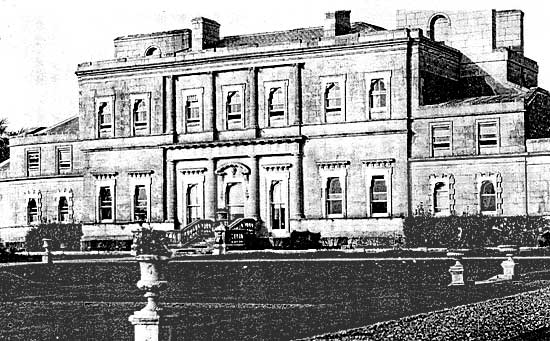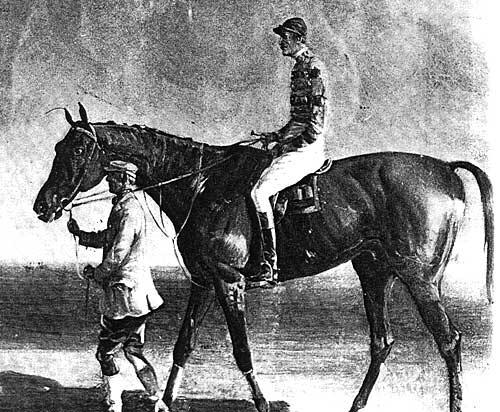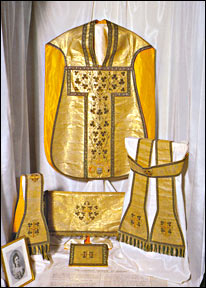![]()
The contents on this page remain on our website for informational purposes only.
Content on this page will not be reviewed or updated.
|
Summerhill, Meath, Ireland 1879 and 1880 |
|||||
|
To see a map of Summerhill, Meath click here In Prime Minister William Ewart Gladstone’s first administration of 1868 - 1874 he made Earl Spencer the Lord Lieutenant of Ireland. This was a position that was less political than social but Earl Spencer did not find much to admire in the society then in Dublin. He was conscious of his high place in society and did not admire the merchant society. They named him ‘Rufus’ at first as he had a large red beard but later due to their dislike called him ‘The Red Earl’. His wife however they did like and called her ‘Spencer’s Faerie Queen’. He did not have a seat in the cabinet and his boredom drove him to take up fox hunting although not an able rider. This new past-time caused the authorities to worry about his safety due to the civil unrest in the country and they insisted that he had a cavalry escort but this had the consequence of making him a more conspicuous target. Then the idea that he should instead be accompanied by a hard riding ADC and Capt ‘Bay’ Middleton was invited to join his staff in 1870. He managed to charm the Earl with his charisma, courage and ability to ride to hounds. By 1874 Mr Gladstone was out of office and Earl Spencer had to return home to Althorp, Northamptonshire where he took over as Master of the Pytchley Hunt. His Aide de Camp resigned the army and also returned to England; now with a position in society and a welcome guest in hunting circles. It may have been in the August of this year, 1874, that Earl Spencer first met the Empress of Austria at the home of his friends, Charles Manners, the 6th Duke of Rutland and his brother, at Belvoir Castle, near Grantham. She had been taken there by her sister Marie Sophie, the ex-Queen of Naples, who already had many friends in English society. There they had hunted together and he invited the Empress to visit Althorp and hunt in Northamptonshire; thus was forged a friendly relationship between their families. The Duke of Marlborough although not the first choice of Mr Disraeli, the new Prime Minister, was asked to be the next Lord Lieutenant and he was rich enough having recently sold the Waddesdon estate to Ferdinand de Rothschild for £240,000. The Duke was pleased to leave England due to family scandals which had resulted in the Prince of Wales issuing a ukase (an arbitrary decree) banning all the Churchill family from Society. Now in February 1879 the Duke was faced with this impending visit by the Empress of Austria and her large entourage at a time when the aftermath of the failure of the potato crop due to potato blight was causing civil unrest in Ireland. Many peasants could not afford their rent and landowners were unsympathetic to the problem and forced many tenants to leave their homes and the politician Parnell was uniting the poor against their oppressive landlords. After the Empress’s visit to Cottesbrooke, Northamptonshire in the early months of 1878 Earl Spencer and his wife were invited to stay in the Habsburg summer home in Ischl, Austria and later the Earl went to the Hungarian summer palace in Gödöllő, near Budapest, where he wrote to his wife on 16th September: I have a comfortable apartment on the ground floor; the room is better fur“nished than those at Ischl.” A week later he was writing to say he was going to stay an extra day to go on a stag hunt and how surprised he was at the wildness of the hounds used for hunting. However, the Empress now declared that she was bored with the hunting in Hungary and it is probable that her guests suggested a visit to Ireland. This was politically an ill-advised suggestion and especially as she was a Catholic. Franz Joseph, the Emperor, was persuaded that a visit from his wife would have no adverse political effect on relations between England and Austria despite the power of England and the formidable Queen Victoria and the problems it could present to the present Lord Lieutenant, the Duke of Marlborough. The Emperor was currently dealing with even greater problems of the Russian/Turkish war and its consequences. Britain would seem to be far away. This is an example of the great tragedy of their marriage: he could not forget that he was a Habsburg and the Empress could not learn to be one. Nevertheless, in this political climate, Summerhill in Meath had been chosen as her residence; Paddy, the 4th Lord Langford, being a friend of both Earl Spencer and Bay Middleton, was persuaded to rent his home even though he would remain and be a guest of the Empress in his own home. In February 1879 knowledge of her visit was learnt by Queen Victoria after the Austrian Ambassador in London told the Duke of Connaught who informed his mother. The Queen distrusted the Irish having been offended when the bust of Prince Albert she had sent to Dublin, after her husband’s death, had been returned; so she let it be known that she was busy with the wedding of the Duke of Connaught. Prince Arthur was her seventh child, and third son, and now in 1879 was to marry Princess Louise, daughter of Prince Frederick of Prussia The Empress had no reception party to greet her when she arrived in Dover in February 1879 and she immediately travelled by train to Holyhead and then by boat to Dublin where the Lord Mayor was present to meet her. But a huge crowd did turn out and cheered her on the train ride to Kilcock where an Austrian flag was flying from the station, a crimson carpet laid out and an arch across the road with the words: “Céad Mile Fáilthe” * hundred thousand welcomes” Before she got on the train from Dublin she was presented with a bouquet and ‘a copy of the time-table, printed on satin, delicately perfumed’. Again a lot of money had been spent to make Summerhill suitable for her stay with a room converted to a private chapel, direct private telegraph lines installed to Europe so that calls would not be routed through England, and a room for use as a gymnasium. Her private party was smaller than usual with Rudi Liechtenstein, Heinrich Larisch, Countess Festetics, Nopsca, head of household, and Langyi, her doctor.
The Empress’s first interest when she arrived was to see the horses and meet the staff who dealt with them. Next she would have to be shown how to jump in Meath as this was country with enclosures surrounded with banks of earth with flat tops and wide open ditches; these had to be taken slowly and the horse allowed to jump to the top of the bank, pause and jump out on the other side. This was not the fast galloping jumps to which she had become accustomed whilst hunting in England. Her horses that had been sent over were not suitable and the famous Master of Hounds, Leonard Morragh, lent her ‘Domino’, the horse that was used by his wife and on him she was in the forefront of the hunt all day together with him, Earl Spencer and Bay Middleton. At the end of the day the stag they had been chasing jumped through a space in a wall that was being mended and into the Maynooth Catholic Seminary with the hounds, and the Empress, in pursuit. She did not know where she was but the President, Dr Walsh, came out to meet the group and on being introduced to the Empress of Austria lent her his gown, invited them in for refreshment and she promised to return. Happily Leonard Morragh was so pleased with the Empress’s riding skills that he gave her ‘Domino’ and the horse was taken back to Austria and ridden by her all its life. When the horse died she had his hooves mounted and sent to him as a gift. Each day she went out there were large crowds to cheer her; this was causing the Duke of Marlborough some disquiet as his own presence with his wife did not have the same result. The Empress did not wish to receive the Marlboroughs at Summerhill but Earl Spencer had arranged for the Duchess to attend a meet with the Meath Hounds but she was displeased to see all the triumphal arches that had been erected for the Empress. The Empress managed to hunt nearly every day; Bay Middleton being her pilot each day except for two days when he went to race in the Grand National that was being held in Derby that year on the 16th March. He fell in the race, re-mounted and came in 3rd. Then on the 20th March a telegram arrived from Vienna telling her of a flooding disaster in Szegedin in Hungary where much of the town was destroyed, many had died and that she was needed at her husband’s side. [Now named Szeged, it is at the confluence of the Tisza and Maros rivers] She agreed to return as quickly as it would be possible to arrange transport and gave orders that the chapel should not be dismantled at Summerhill as she would return. Queen Victoria being away in Italy the Empress was saved from another formal meeting but instead the Prince of Wales was received by the Empress in her railway carriage at Addison Road station in Kensington, London. Then she could continue on her journey back to the Emperor. This would be the year of their Silver Wedding, 1879, and was said that it should have been: “25 years of ménage but, had been 25 years manège.” [a riding school] In 1879 the Empress was 41 years old and determined to return to Ireland to hunt again with the Meath Hunt. There she had enjoyed a life without all the boring court life but with adoring crowds and friends with similar interests. This all spelt an amount of freedom that she could not enjoy at home where formal behaviour was expected from a Habsburg Empress. It was unlikely that the Emperor would allow her to return given the political situation in Ireland and Karolyi, the ambassador, should have known better except he was an Hungarian aristocrat and sportsman who would have wanted to support the Empress.
Despite the setbacks, injuries and embarrassments she declared that she loved Ireland but the political situation was difficult and her presence was causing problems. She still wanted to return there for the winter months and asked Linde, her secretary, to find a suitable residence. London heard about this and messages were quickly relayed to Austria; as Franz Joseph did not want extra problems, especially with Great Britain, he ordered her to return. She obeyed but after one final outing. Henry Eyre Linde of The Curragh was a famous trainer of steeplechasers. He treated his horses well and with the Beasley brothers as his jockeys won many races at home and abroad. He had already been presented to the Empress when she hunted with the Kildare Hunt and he had invited her to visit his stables. The last day of her Irish visit she went on the train with Bay Middleton and Rudi Liechtenstein to the stables and inspected all his horses with her professional eye. One she declared to be: “too good” and Henry Linde renamed him “Toogood”; he was to win the Paris Grand Steeplechase in 1883 after which he immediately telegraphed Vienna to let her know of its success. It also came 2nd in the English Grand National in 1886. This time on her return through London the Emperor insisted that she must comply with the necessary courtesies. The Prince of Wales met her train and took her to Claridges Hotel where she would stay the night. The following day she went out to meet Queen Victoria at Windsor Castle and in the evening was greeted by the Prime Minister, Mr Benjamin Disraeli. Her unhappy visit had one more surprise – she was given a telegram saying that her son Rudolf was engaged to Princess Stephanie of Brussels. She had been entirely unaware that this was imminent and so stopped off in Brussels to meet his 15 year old fiancée and her family before her return to Vienna. |
|||||


